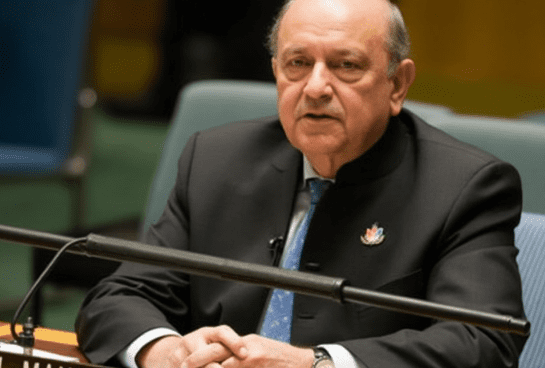This week at the United Nations General Assembly, Pakistan’s Prime Minister Muhammad Shehbaz Sharif delivered a stark warning about the rising geopolitical tensions that he described as reminiscent of the Cold War. Speaking to world leaders, he highlighted the multiple crises the world is currently facing, including transnational conflicts, terrorism, and the existential threat of climate change. These challenges, he argued, are intensifying global divisions and threatening to push the world back into a Cold War-like state.
The New Global Divides
Prime Minister Sharif pointed to the increasing rivalry between major powers, particularly between the United States and China, as well as the ongoing war between Russia and Ukraine. These conflicts, he warned, are creating a more polarized world, with countries being forced to take sides in geopolitical disputes. The Prime Minister urged world leaders to seek diplomatic solutions to these growing tensions, advocating for peaceful dialogue instead of confrontation.
He also emphasized the role of regional conflicts, particularly in the Middle East and South Asia, as key contributors to global instability. Sharif called for a renewed commitment to multilateralism and the principles of the United Nations, warning that unilateral actions by powerful states are eroding the global order.
Addressing Climate Change
In addition to geopolitical tensions, Sharif highlighted the grave threat posed by climate change, particularly to developing nations like Pakistan. He noted that while these nations are the least responsible for global carbon emissions, they are among the most vulnerable to its impacts. Pakistan, which has experienced devastating floods and extreme weather events in recent years, is already feeling the effects of a warming planet.
Sharif called on the international community, especially the world’s largest polluters, to take immediate and meaningful action to mitigate climate change. He stressed that failure to address the climate crisis will only exacerbate global inequalities and contribute to further geopolitical instability.
A Call for Global Solidarity
In his closing remarks, Prime Minister Sharif urged world leaders to rise above their differences and work together to address the urgent challenges facing humanity. He reiterated the need for global cooperation in tackling issues such as poverty, climate change, and conflict, and warned that a failure to do so could lead to a new era of division and hostility reminiscent of the Cold War.





